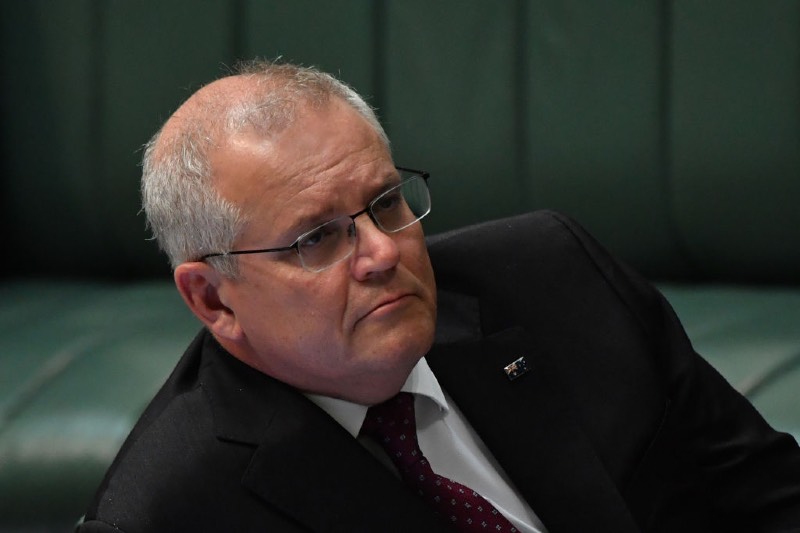Extract from Eureka Street
- John Falzon
- 06 May 2021
In a recent speech to business leaders, Prime Minister
Morrison made the remarkable claim that ‘we are going to meet our
[climate change] ambitions with the smartest minds, the best technology
and the animal spirits of capitalism.’
You heard right. The animal spirits of capitalism!
It’s not the first time the Prime Minister has used this term. In 2019, he spoke of the need to provoke ‘the animal spirits in our economy’ by removing regulatory barriers to business investment. You know the kind. Barriers like paying a fair amount of tax, paying decent wages, and providing working conditions that offer even a semblance of security.
In the neoliberal worldview, worker entitlements like sick leave (even in the midst of a pandemic!), annual leave, carer’s leave and domestic violence leave are seen as barriers to business investment and economic growth.
This is straight from the neoliberal playbook, the doxa that the role of government, rather than being there to achieve the collective dreams of the many, is to get out of the way to make room for those animal spirits so as to pander to the fantasies of the wealthy few. This is why he wants to 'remove regulatory and bureaucratic barriers to businesses investing and creating more jobs.' Except we know from what remains of the bedraggled IR Omnibus bill, from the defeated and epically misnamed Ensuring Integrity bill and earlier from John Howard’s WorkChoices that when they talk about creating more jobs they’re really talking about creating fatter profits. We also know that putting the screws on workers is neither a path to job creation nor a recipe for economic growth.
And this tells us everything about what the Prime Minister means when he talks about the animal spirits of capitalism or the animal spirits in our economy. Capitalism and the economy being in his view synonyms. In other words, what’s good for the chief owners of private capital is good for everyone. This is naturally followed by the woeful logic that if the rich get even richer, then some of the wealth will trickle down. Now, if you think it’s hard to get in touch with those mischievous little animal spirits, you should try listening out for the sound of the wealth trickling down! I’ve been listening hard for ages and all I can hear is the sound of the excluded still waiting.
It does not have to be this way. You can reconfigure the economic settings, including our industrial relations framework, so that the lives and livelihoods of workers are actually improved and you can even, given the guts and the gumption required by genuine political leadership, do this in such a way that businesses are encouraged to see the longer term benefits of a strong and safe society and a planet that is not fast-tracked for destruction. In the meantime, however, those animal spirits are somehow meant to explain and justify, on one side bumper profits, corporate tax cuts and lavish business welfare and, on the other, stagnant wages, underinvestment in social infrastructure and the wholesale normalisation of inequality and insecurity.
'But Morrison, as far as I can tell, is conjuring up these animal spirits as if they represent what he fervently believes to be the deeply human desire to make lots of money.'
It would be convenient to put aside for the moment the fact that the Prime Minister’s recent invocation of animal spirits was little more than a means of veiling his government’s abrogation of responsibility on the climate crisis. We would be far more relaxed and comfortable, to use his mentor’s favourite formulation, to put aside for the moment the evidence that this is a crisis of such urgency and severity that it caused this country to become an inferno during the summer of 2019/20 and the Torres Strait Islands to be threatened by rising sea levels.
It would indeed be convenient. But the climate crisis is exactly where you end up when you abandon all notions of democratic oversight of economic activity in favour of provoking or invoking those animal spirits.
Morrison is not the first to speak of these animal spirits. John Maynard Keynes, whose economic theories Morrison arguably entertained, albeit fleetingly and superficially, at the beginning of the COVID-19 crisis, defined animal spirits in his 1936 General Theory of Employment, Interest and Money as that 'large proportion of our positive activities [which] depend on spontaneous optimism rather than mathematical expectations… a spontaneous urge to action rather than inaction, and not as the outcome of a weighted average of quantitative benefits multiplied by quantitative probabilities.'
In Keynes’ usage the term refers to the kind of instability that is intrinsic to capitalism, an instability that can yield both positive and negative results, depending on who you’re talking to. But Morrison, as far as I can tell, is conjuring up these animal spirits as if they represent what he fervently believes to be the deeply human desire to make lots of money. For Morrison, it would seem that these spirits literally animate the best of us to take the risks to make more money. And who are the best of us in this schema? Big business. Why else would he address this invocation exclusively to this audience? But who carries the burden of risk. The rest of us.
When Scott Morrison’s time as prime minister is over, his legacy will be, above all else, a deliberately manufactured surge in inequality and insecurity writ large across an economy where we are further disempowered as workers and citizens; a society where we are disenfranchised, and a climate crisis that threatens everything we hold dear.
That’s what you get when you vacate the space for democratically accountable decision making and leave our lives in the hands of the animal spirits of capitalism.
 Dr John Falzon is Senior Fellow, Inequality and Social Justice at
Dr John Falzon is Senior Fellow, Inequality and Social Justice at
No comments:
Post a Comment